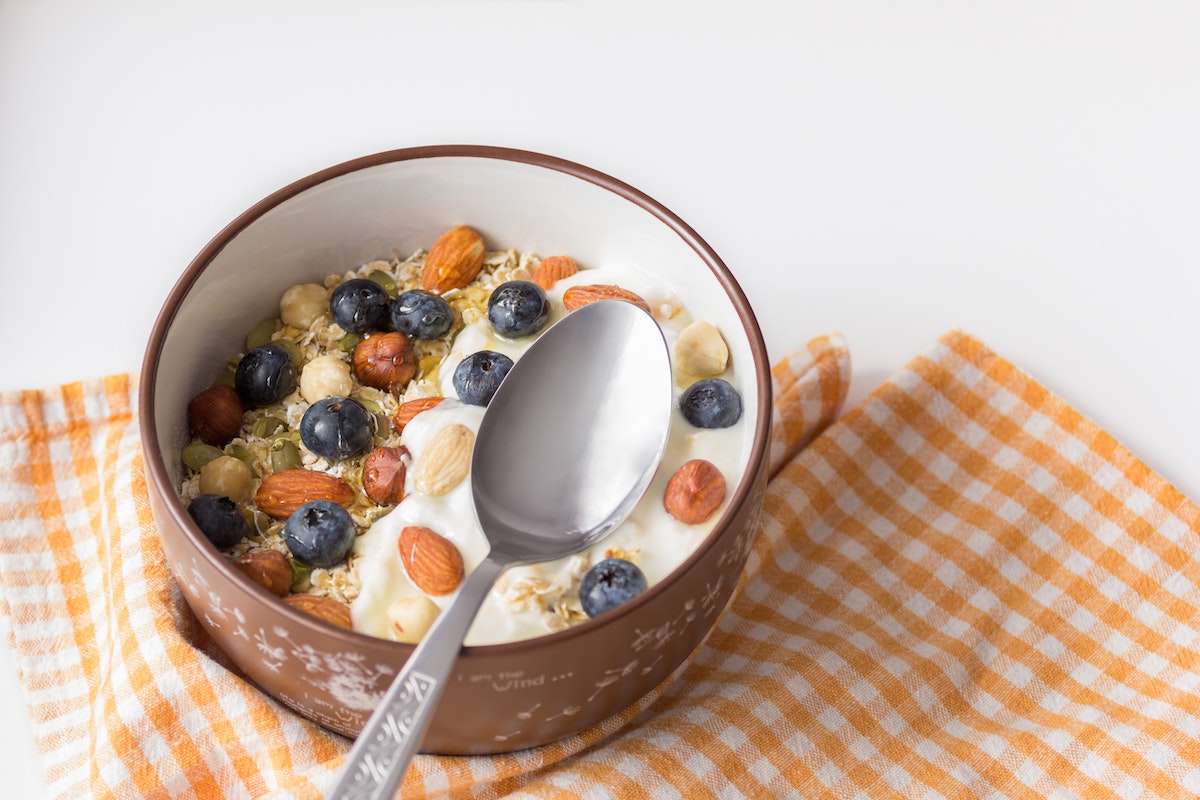
We obsess over carbs and fats and we tend to overlook fiber which is unfortunate because the majority of people are not getting enough of it. The overconsumption of take-out and processed foods combined with less vegetables and fruits makes it easy to not consume enough. I typically see clients getting between 8-15 grams of fibers daily.
The USDA’s Dietary Guidelines for Americans suggests:
- 25-28 grams for women under 50
- 31-34 grams for men under 50
- 22 grams for women 51 and older
- 28 grams for men 51 and older
I recommend slowly increasing your fiber intake so that you don’t experience any GI distress like gas, bloating, constipation/diarrhea, abdominal discomfort or cramping. If you do experience these symptoms cut back on the fiber and then slowly increase your intake so that your body can get used to it. Maintaining adequate fluid intake (aim for half your body weight in ounces of water) and getting movement in during the day will also help prevent these symptoms.
There are 2 main types of fiber:
- Soluble. This type of fiber dissolves in water and helps slow down digestion by pulling water into the intestines and creating a gel-like substance that helps us feel fuller longer. This gel-like substance also helps reduce the cholesterol in the body and the absorption of blood sugar. Soluble fiber can be found in oats, peas, beans, apples and citrus fruits.
- Insoluble. This type doesn’t dissolve in water, it helps add bulk to your stool and passes through you system more quickly. This type of fiber helps promote regular bowel movements. Insoluble fiber can be found in nuts, beans, cauliflower, green beans and potatoes.
It’s important to eat a variety of foods that contain fiber to ensure that you are getting both soluble and insoluble fiber. All vegetables, fruit, nuts, beans and whole grains contain fiber.
Here are 10 high-fiber foods:
- Raspberries
- Avocado
- Pinto beans
- Chia seeds
- Old fashion oats
- Pears with the skin
- Artichokes
- Sweet potato with the skin
- Almonds
- Quinoa
So why is fiber so important?
Well fibers have many benefits including:
- Supporting weight loss by helping you stay fuller longer
- Helping lower LDL cholesterol and triglycerides
- Helping lower blood sugar levels
- Lowering your risk of heart disease and stroke
- Lowering your risk of diabetes
- Promoting bowel health
- Preventing high blood pressure
- Improving immune function
Now let’s talk about 7 ways that you can increase your intake:
- Opt for whole fruits instead of fruit juices
- Add one serving of vegetables to your dinner
- Sprinkle chia seeds into your oatmeal, yogurt, salads or smoothies
- Aim to fill half your plate with fruits and vegetables
- Dip raw vegetables in hummus or a dip
- Swap out regular pasta with chickpea pasta
- Use whole wheat bread instead of white bread
I always recommend trying to get as much from food as possible before using fiber supplements. If you need to use a supplement, Psyllium husk powder is a good option as it contains both soluble and insoluble fibers.



